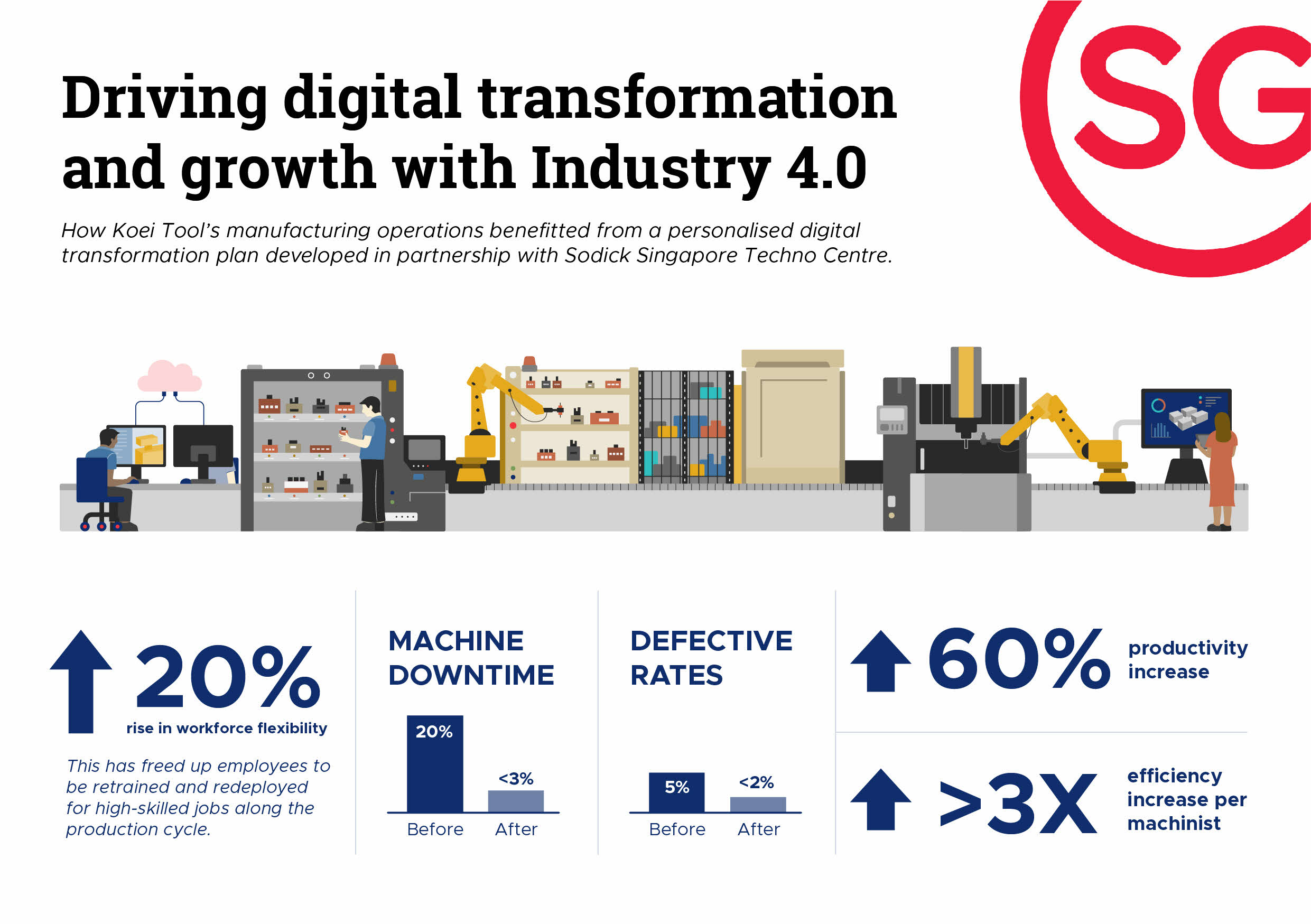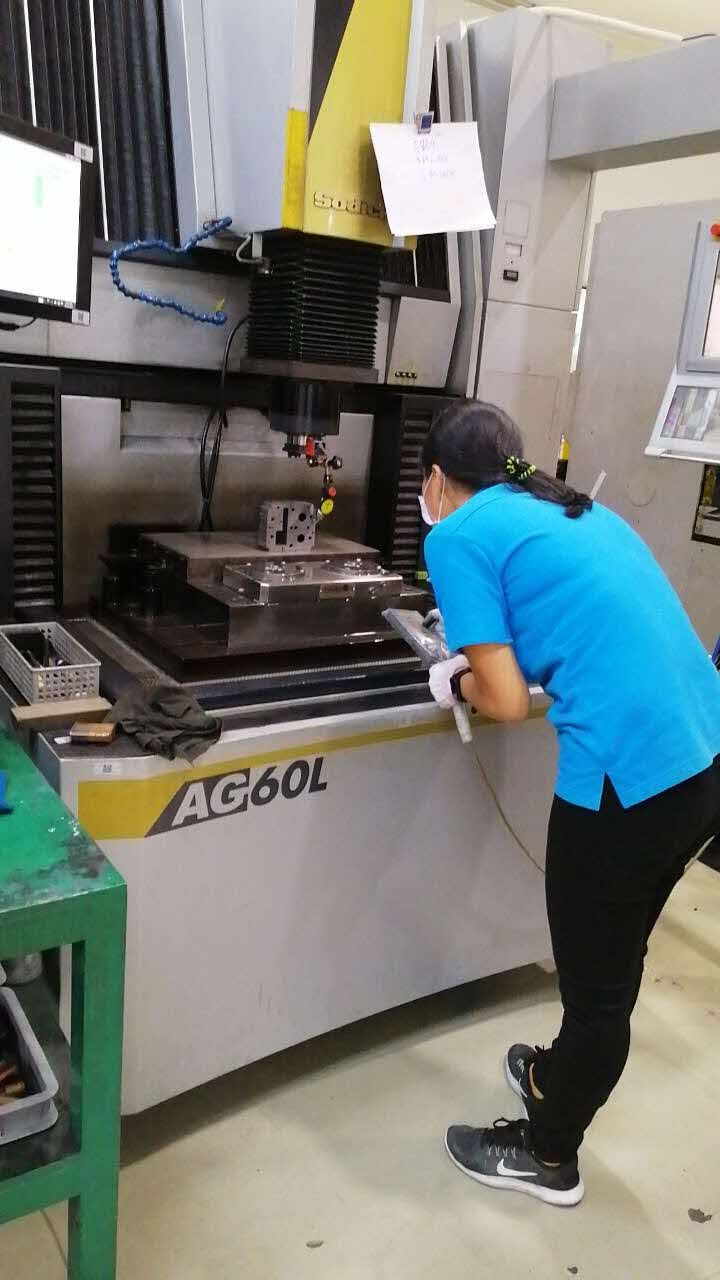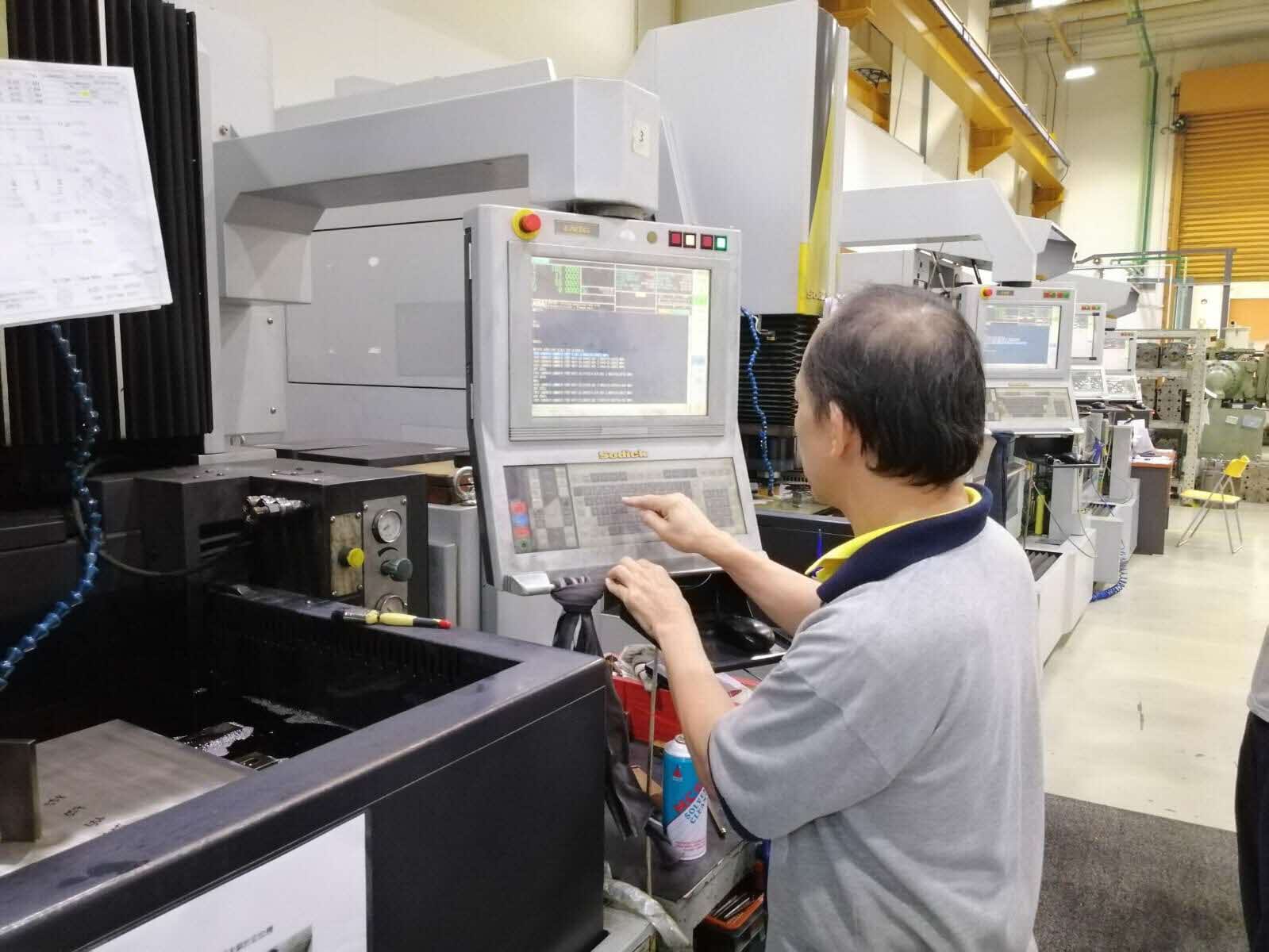

COVID-19 has accelerated the adoption of i4.0, characterised by the digital transformation of production lines through automation, advanced analytics, and data-governed systems to increase productivity and drive growth. In fact, the gains offered by i4.0 are no longer an option but a necessity for manufacturers.
"According to a 2021 McKinsey survey of more than 400 global manufacturing companies, 94 per cent of respondents expressed that i4.0 technologies helped them to keep their operations running during the pandemic."
Companies were able to leverage digital transformation to minimise disruptions amidst manpower shortages, which translated to a rise in operational productivity and responsiveness. That said, for companies without the right support or knowledge on where to begin, embarking on i4.0 transformation can appear daunting.
Manufacturers such as Koei Tool are partnering technology and solution providers, such as the Sodick Singapore Techno Centre (SSTC), to help them embark on their transformation journey. For Koei Tool, this has led to a 60 per cent increase in productivity and a 20 per cent rise in workforce flexibility on their assembly lines.

Headquartered in Singapore, Koei Tool’s core business lies in the end-to-end production of automotive parts moulds for international companies such as Honda, Toyota, and BMW. The need to stay cost-competitive prompted the manufacturer to start embracing i4.0 in 2017. Koei Tool found a reliable partner in SSTC, which was set up in collaboration with the Singapore Economic Development Board (EDB) and Jurong Town Corporation (JTC) to help companies develop i4.0 core capabilities through technological solutions.
Upon reviewing Koei Tool’s manufacturing operations, a tailored, three-phase approach to i4.0 transformation was developed by SSTC for the company’s implementation. By adopting i4.0 in stages, Koei Tool was able to assess for itself where technological solutions would be best placed to complement and add value to existing processes. Disruptions to operations were also minimised, as it did not need to overhaul its system all at once.
Robots and humans, hand-in-hand

In the first stage (semi-automation), human-oriented tasks such as the inspection of components were completed through semi-automated programmes, to minimise human error and facilitate real-time data collection for follow-up processes. The second stage (full automation) introduced robotic arms and fully automated modular cells to the assembly line.
The effective use of automation technologies increased production efficiency and eliminated the need for manual labour.
- Automation allowed Koei Tool to continue production with unmanned machines during the pandemic.
- To ensure that production continued smoothly throughout the transformation process, SSTC conducted training sessions to help Koei Tool’s staff familiarise themselves with new processes.
- Freed from manual labour-intensive tasks, employees were retrained to work on other stations and upskilled for new roles along the production cycle, such as managing the assembly line via the newly implemented systems.

Powering manufacturing transformation from Singapore
The third and last stage (integrated production and operation management) entailed overseeing operations through a Manufacturing Execution System (MES) which tracks product inventory and client orders, as well as dispatches instructions for production and order fulfilment.
The standardisation and systematisation of manufacturing processes increased overall productivity and strengthened employees’ ability to mitigate production issues.
- With the MES, staff can pre-plan production from Singapore by monitoring project statuses in real-time and advising clients on scheduled completion dates more accurately
- Resources and design plans can also be shared easily across facilities through the MES, allowing the company to overcome geographic limitations and tap on engineers across its overseas facilities amidst a severe talent crunch.
- Projects from the region can be delegated to different factories if a facility is assessed to have insufficient production capacity to meet deadlines, offering Koei Tool more flexibility in their operations.
- The flexibility gained from the MES has allowed Koei Tool to optimise its resources, expand its capacity and grow its customer base.

The time for i4.0 is now
Kickstarting the i4.0 transformation journey early has shortened Koei Tool’s manufacturing cycle time and increased productivity, allowing the company to better cope with unforeseen market disruptions. Koei Tool’s success in Singapore has prompted it to implement similar i4.0 adoption road maps in its factories in Thailand and China, with plans for digital transformation in their Malaysia, Indonesia and Japan facilities as well.
In the age of shifting supply chain demands and market volatility, the urgency of digital transformation is more apparent than ever for manufacturers. While there is no “one-size-fits-all” strategy for digital transformation, manufacturers can avoid common pitfalls and maximise i4.0’s potential by collaborating with the right partners. Singapore’s thriving ecosystem of partners is ready to help businesses embrace i4.0 and develop world-class, future-ready infrastructure.
For manufacturers looking to make the leap, there is no better time than now.
This article first appeared on Singapore EDB website.
 A Singapore Government Agency Website
A Singapore Government Agency Website


